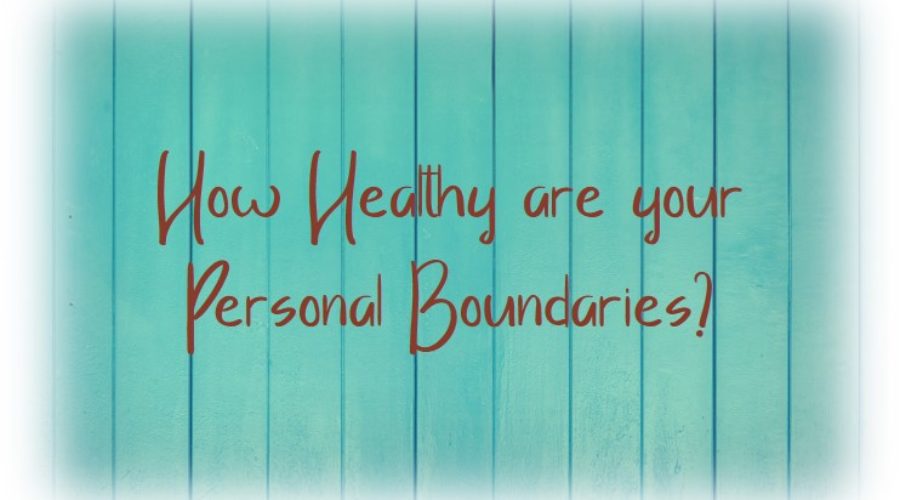Do You Have Unhealthy Personal Boundaries? 3 Symptoms You Do, and How to Remedy It
Are Your Boundaries Willy-Nilly or Ironclad?
When introducing me to a new boyfriend, my daughter once said “I know you like him. You like everyone. But what does Dad think?” She was right. I’ve always been described as someone who openly welcomes anyone into my personal (psychological, mental, emotional) space. The truth is, my border patrol has traditionally been lax, at best. I love people and tend to greet them with open arms (quite literally). I smile at people on a busy city street, and much to my (now-adult) kids’ dismay, strike-up conversations with strangers at Target. Only after I’ve been scorched by opening my heart or sharing my trust so haphazardly do I pull back, reevaluate, and slap up some makeshift boundaries while I heal my wounded psyche and decide how to proceed.

Meanwhile, I know many people who employ a fierce, nearly impenetrable border. Draw too close, and their guards firmly escort you to a safe, less intimate distance. To get past the basic pleasantries and truly gain the trust of the people with strong boundaries requires consistency, effort, and patience. Here’s the thing, though, I’ve observed that people whose boundaries are clearly defined suffer less anguish at the mercy of others.
Would You Invite the World into Your Bathroom?

Our physical worlds are full of boundaries. We have walls in our homes, doors we sometimes lock, fences around yards, and keycodes to enter our apartment buildings. Each of us likely has a sacred space in our home where we share ourselves only with the most trusted, intimate people in our lives. For instance, there are precious few people we would allow inside the four walls of our bathroom with us. Yet, if you tend to maintain willy-nilly boundaries like I do, it’s akin to letting anybody stand inside your bathroom while you complete your morning routine. It’s inviting people, no matter their intentions, into our most sacred, intimate spaces.
Like our physical realm, we can erect solid, self-caring boundaries around our mental and emotional selves. Such virtual borders allow us to connect with the people who enrich our lives and keep us insulated from those who disturb our sense of peace or balance, or who, worse yet, do us harm. The following are three signs that your personal boundaries need help, along with tools to analyze and establish borders that take the best care of you!
Symptoms you have Boundary Problems, and What to Do
Symptom 1: You have repeating negative experiences with the same people.
If you regularly feel unsettled or distressed when in the presence of certain people in your life, or you walk away from them feeling irritated, sad, discouraged or generally low energy, you may have a lenient border patrol. It’s time to evaluate what it is about certain people that evoke those feelings. You will likely identify characteristics that push your buttons, unsettle your spirit, or drain your energy tank.

Remedy 1: Establish criteria for the people who get your time, attention, and energy. For example, I connect with people who meet the following criteria: they are kind, I can be myself in their presence without being judged, they care as much about learning as I do, and we collaborate (vs compete) with one another. So, when I spend time with people who are the opposite of those things (harsh or callous, judgmental, stuck, and superior or competitive), my energy drains away and my outlook wilts. I have to be careful not to be judgmental myself as I evaluate people against those criteria, but once I have a few interactions that produce the same feelings, I know it’s time to erect some type of border.
Symptom 2: You lack a sense of power in some relationships.
You’re snared into spending time with people who don’t satisfy your criteria, or you unconsciously keep giving them access to your mental and emotional energy. What’s worse, you think about, and maybe even hyper-focus on, their words or opinions even when you are no longer with them. In your mind, they relentlessly critique you or your actions, even when you’re not with them. Whether at work, school, or family gatherings, you feel stuck and uncomfortable in these relationships and don’t see a way out.

Remedy 2: Create rules of engagement for people who don’t meet your criteria. Think of rules of engagement as keys to the lock on your gate or the code to the door on your apartment. Under what circumstances will you open the way for people to enter the space and sip from your emotional reservoir? Rules of engagement can be adaptable (e.g. I spend time with them only when around other people) or strict (e.g. I do not spend time with this person). Moderate rules of engagement work in most cases. A few of my favorites are:

- I accept invitations from this person that have an obvious beginning, middle, and end.
- If this person says something hurtful or judgmental, I walk away without feeling I’ve done something wrong.
- I skim over, delete, or even block this person on Social Media because his/her posts consistently bother or offend me.
- I visit with them in places or situations where I can leave whenever I choose.

Symptom 3: You notice feelings of isolation or wonder if you’re becoming a hermit.
This symptom can mean your border control is too inflexible and you’re shutting people out. Believe it or not, maintaining sturdy boundaries can be as draining as having flimsy ones. Imagine that instead of a simple keycode to your door, you’re sequestered in a stone castle, complete with a moat and a barbed-wire fence around the perimeter, and a 3-ton gate that must be lowered for entry. Substantial energy and attention are required to patrol and secure such a fortress. You may be pleasantly surprised if you loosen those boundaries some.

Remedy 3: Evaluate the strength of your border patrol and notice how it might benefit you to welcome some people into your space. Because your needs, vulnerabilities, and capabilities change over time, your boundaries can shift to accommodate. People who pushed your buttons a year ago may have a neutral impact on you today. Consider letting them closer. You may be glad you did.
The goal is to maintain a healthy set of boundaries that simultaneously connect you to the people who feed your soul and insulate us from those who deplete it. Keep an eye on the 3 symptoms and activate the remedies whenever you need to reclaim your sense of balance and peace.
©Susan M Vitale, 2019

